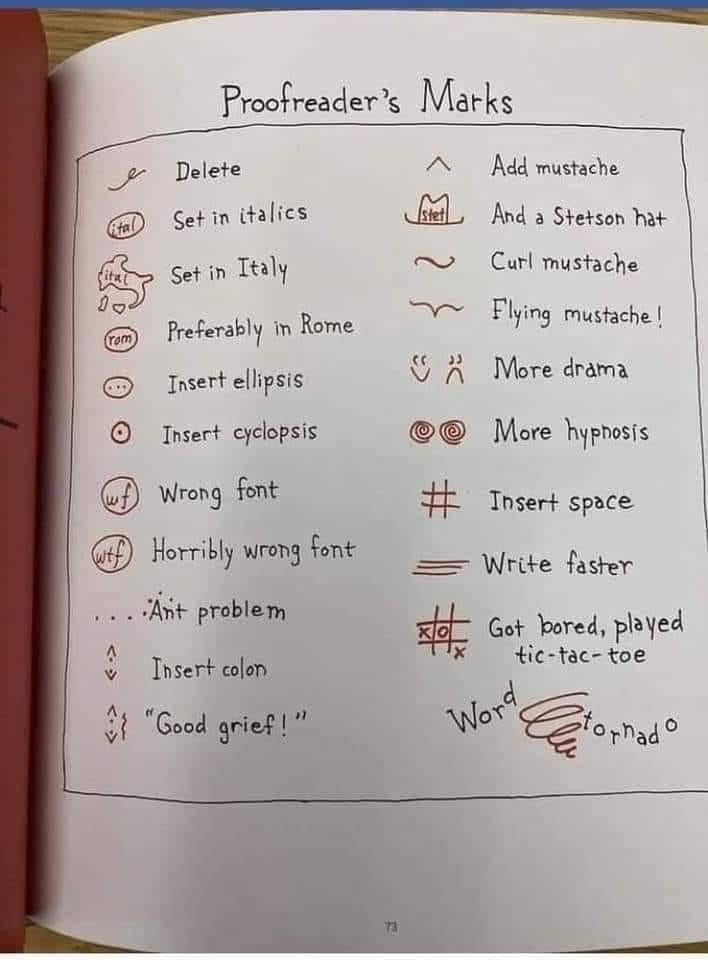Honestly, I've lost count of how many stories, plays, anthologies and novels I have edited. It wouldn't be a huge number - I know I have edited exactly one play - but it would be a good one. Furthermore, I would define editing these works as something far more than just giving something a look and making my proofreading marks. Editing is a far more intense process, and something every writer should learn as a secondary talent - even if only to understand what other people go through.
Editing is often thought of as checking to see if anything is wrong. This would be the equivalent of saying a mechanic's job is to make sure the car starts. If the car doesn't start, the mechanic has more work to do, but if the engine fires up and you can drive the car out of the garage, his work is done. Right? Not even close. An editor who just finds glaring errors is a proofreader.Sure - an editor's first job is to make sure a piece is readable. However, this requires a whole checklist of steps and not just a turn of the grammatical key to get it running. An editor makes sure there's no blue smoke billowing from the exhaust (or any other place), that there's no rattling noises, that the performance is within expectations, and that everything works the way it's supposed to. If you do not get this from your editor, they might not be an editor.
Some parts of basic editing are handled by your word processor. A basic spelling/grammar check is available on most packages, and they can do some of the heavy lifting for you. Learn the details of your grammar checker and it can sniff out taboo things like passive voice, homonym errors, and nonsensical (but grammatically clean) sentences. After that, it gets a little more customized and complicated.
The most important part of an editor's job, however, is answering to the writer's demands, and that's up to you. Do you want someone telling you where twenty-word sentences could be pruned down to ten words? It does make your work more efficient, but not all editors do that. Do you want your period piece fact-checked? How important is continuity? Should dialogue be grammatically correct, or should it be structurally broken - like human speech often is? Most importantly, how much of your editor's opinion do you want regarding the content?
If there comes a point where you either want to hire an editor for your work or be an editor yourself, prepare yourself. Each situation will be different and each work will demand its own priorities. Each assignment usually is best served by a sit-down between editor and writer, where they figure out what is needed versus what is offered, and whether there is common ground that satisfies the writer. And yes, this is a little more of a discussion than just telling your mechanic, "I just want it to run real well."
And on that note, I am going to prep for another editing assignment. And by prep, I mean have the first meeting. Preferably over lunch.


No comments:
Post a Comment